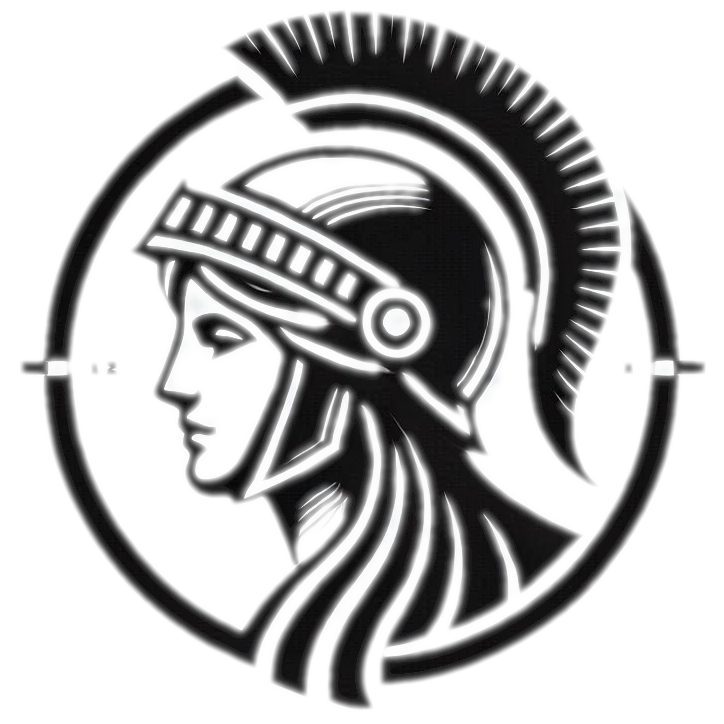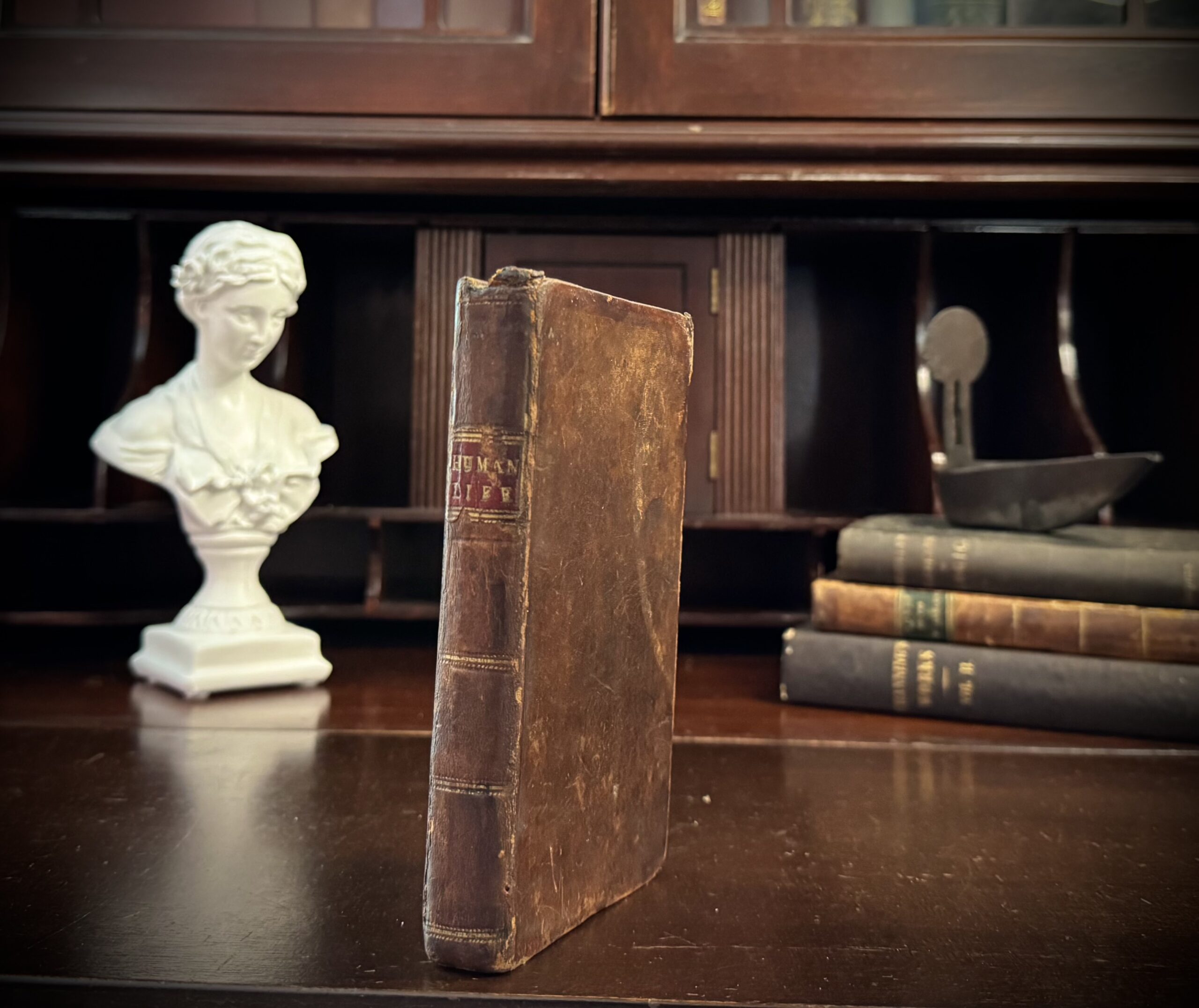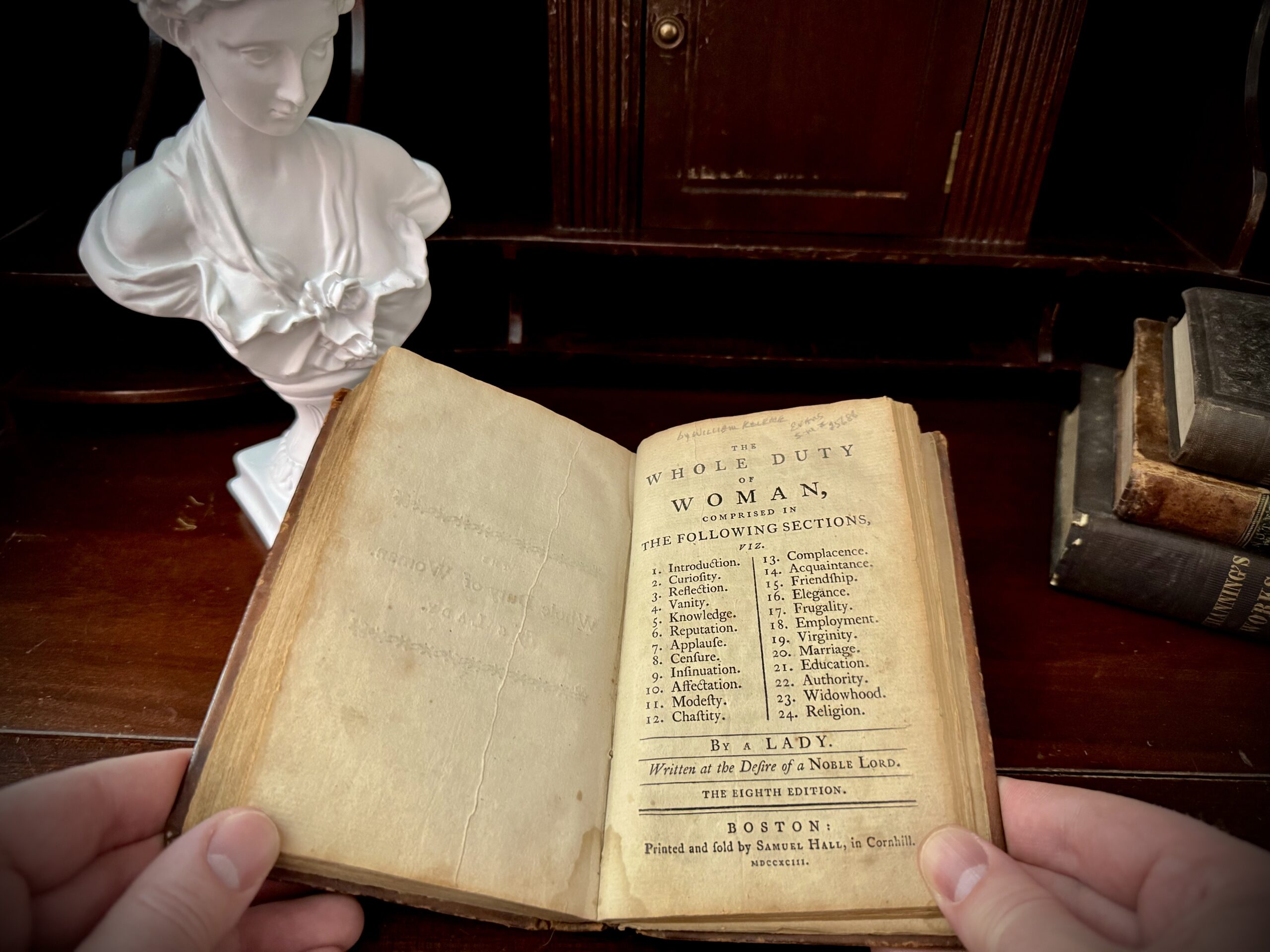- Title: The Economy of Human Life
- Printed by T. C. Cushing and sold by William Carlton at the Bible and Heart, Salem
- Title: The Whole Duty of Woman
- Printed and sold by Samuel Hall in Cornhill, Boston
- Estimated year of printing: 1793
Notes:
Inscription: Hoadiah Rockwell’s Book; Oct. 8th 1794
Two moral guidance books in one binding, this is the earliest American printing in my collection, having been printed in Salem and Boston shortly after the conclusion of the Revolutionary War.
According to it’s unspecified author, The Economy of Human Life was a translation of an ancient Indian manuscript, but in fact it was written by Robert Dodsley (1704–1764), Philip Dormer Stanhope, Earl of Chesterfield (1694–1773), and John Hill (1714–1775). First published in 1750, it is a series of short, inspirational pieces written in the style of the Book of Proverbs.
The second book here, The Whole Duty of Woman, was inspired by the first, and is probably the more interesting of the two. First published in Britain in 1753, this is the first American printing. A book of advice for how to be a proper woman, it provides guidance on a variety of topics such as vanity, marriage, and curiosity. Adopting a poetic form, the premise is that the author, specified only as “A Lady”, is a reformed woman persuading other women to virtuous. But of course, it was actually written by a man, William Kenrick (1725 – 1779). Kenrick was not the ideal person to offering advice to anyone, plagiarizing and insulting other authors, picking literary fights, and anonymously penning fiery responses to his own arguments to generate controversy.
The advice here borders on offensive. For example, on the topic of marriage it suggests having a “meek” and “gentle” response if your husband deceives you. On the topic of curiosity: “Seek not to know what is improper for thee; thirst not for prohibited knowledge: For happier is she who but knoweth a little, than she who is acquainted with too much.”
The printer, Samuel Hall (1740 – 1807), was an influential early American printer. He established the first printing press and newspaper in Salem, The Essex Gazette, in 1768, and used it to voice strong support for American independence. Hall moved his printing operation to Boston in 1776.
Historical context:
When this book was published in 1793, George Washington was President of the United States. The Bill of Rights, comprising the first 10 amendments to the Constitution, had recently been adopted in 1791. A few years later in 1797, the USS Constitution launches, still afloat today as the oldest commissioned naval warship.



